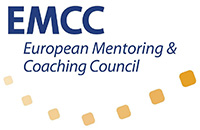Latest News
‘Beta men’ keep women out of the boardroom
By Simon Duke and James Gillespie (read full article on Sunday Times)
LYNN FORESTER has spent her life surrounded by powerful men. Her husband is Sir Evelyn de Rothschild, the British financier, and her father owned an aviation company.
Lady de Rothschild has also forged her own remarkable career and, in doing so, become one of the world’s most successful businesswomen.
Now, in outspoken comments to coincide with a call for more women company directors, she has accused large firms of settling for weaker “beta men” in the boardroom.
Win the strategy game in five steps
By Hannah Prevett (read article on Sunday Times)
Chief executives may think they know what a good strategy looks like. But according to AG Lafley, the former Procter & Gamble boss, and Roger Martin, dean of the Rotman School of Management in Canada, they haven’t a clue.
“In a sense, strategy has become a bureaucratic planning exercise to lay out all the stuff organisations are going to do, rather than being an exercise . . . where companies say ‘we’re going to stand in this territory and this is how we’re going to win’,” said Martin.
Meeting? Take a walk in the park
By Hannah Prevett (read article on Sunday Times)
We’ve heard about walking the talk, now we have “walk-and-talks” — the art of conducting business meetings on the move.
When Nilofer Merchant, the Silicon Valley strategist and author, requested a coffee meeting with the venture capitalist Heidi Roizen and was told that Roizen “didn’t do” coffee, she jumped at the chance to accompany her for a dog walk instead.
In fact, she liked the idea so much that she introduced walk-and-talks into her own schedule. It was a new answer to an old problem, she said. “It struck me that I had managed to do a fitness thing and get a meeting done at the same time.”
4 Steps to becoming a great problem solver
by Steve Tobak (read article at CBS Moneywatch)
If you’ve ever heard the expression, “That’s why you make the big bucks,” then you were probably on the hook to solve a tough problem. Indeed, the ability to troubleshoot complex issues, fix troubled organizations, beat bigger competitors or successfully manage crises, is highly valued in the corporate world.
Just ask Thomas Horton, the American Airlines executive who was named chairman and CEO of parent company AMR on Tuesday, the day it filed for Chapter 11 bankruptcy protection. Horton got the job because of his track record dealing with thorny union and regulatory issues. And now AMR’s restructuring, how well it’s positioned when it emerges from bankruptcy and the future of the iconic airline is entirely in his hands.
Are you lonely, feeling small?
by Carly Chynoweth (read article at The Sunday Times)
Stressed out bosses will always benefit from having someone to talk to. but often they find that the greatest help comes from within.
Almost all successful business leaders go through times when they feel confused, discouraged and unsure of themselves. They may feel they are in the wrong place, doing the wrong job, and find it hard to believe others in similar roles can feel the same way, said Robert Kaplan, former vice-chairman of Goldman Sachs, who is a professor of management at Harvard Business School.
Acknowledging this and building strategies to overcome it can significantly improve performance. “A key difference between those who reach their potential and those who don’t is how they deal with these periods of confusion and uncertainty,” he writes in his book, What to Ask the Person in the Mirror.
It’s emotion taking us over
by Carly Chynoweth (read article at The Sunday Times)
Feelings are playing a bigger part in business decisions, and it’s not just because there are more women in the workplace.
Managers have always tended to be dispassionate, logical types when it comes to decision-making. Most of them have what psychologists call a “thinking” preference, meaning that they favour a rational, impersonal approach. Only a small number have a “feeling” preference, which indicates that they place more weight on the people and relationship aspects of decisions.
The past decade, however, has seen an increase in the number of managers who prefer to let their feelings lead the way, said Robert Terry, founder of Ask Europe, a leadership development consultancy.



